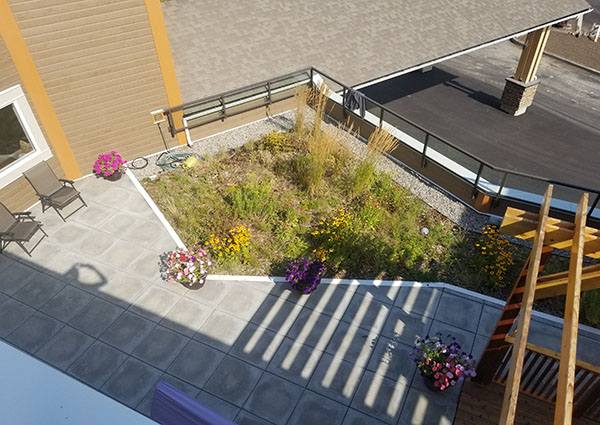What is the Best Commercial Roofing Material?
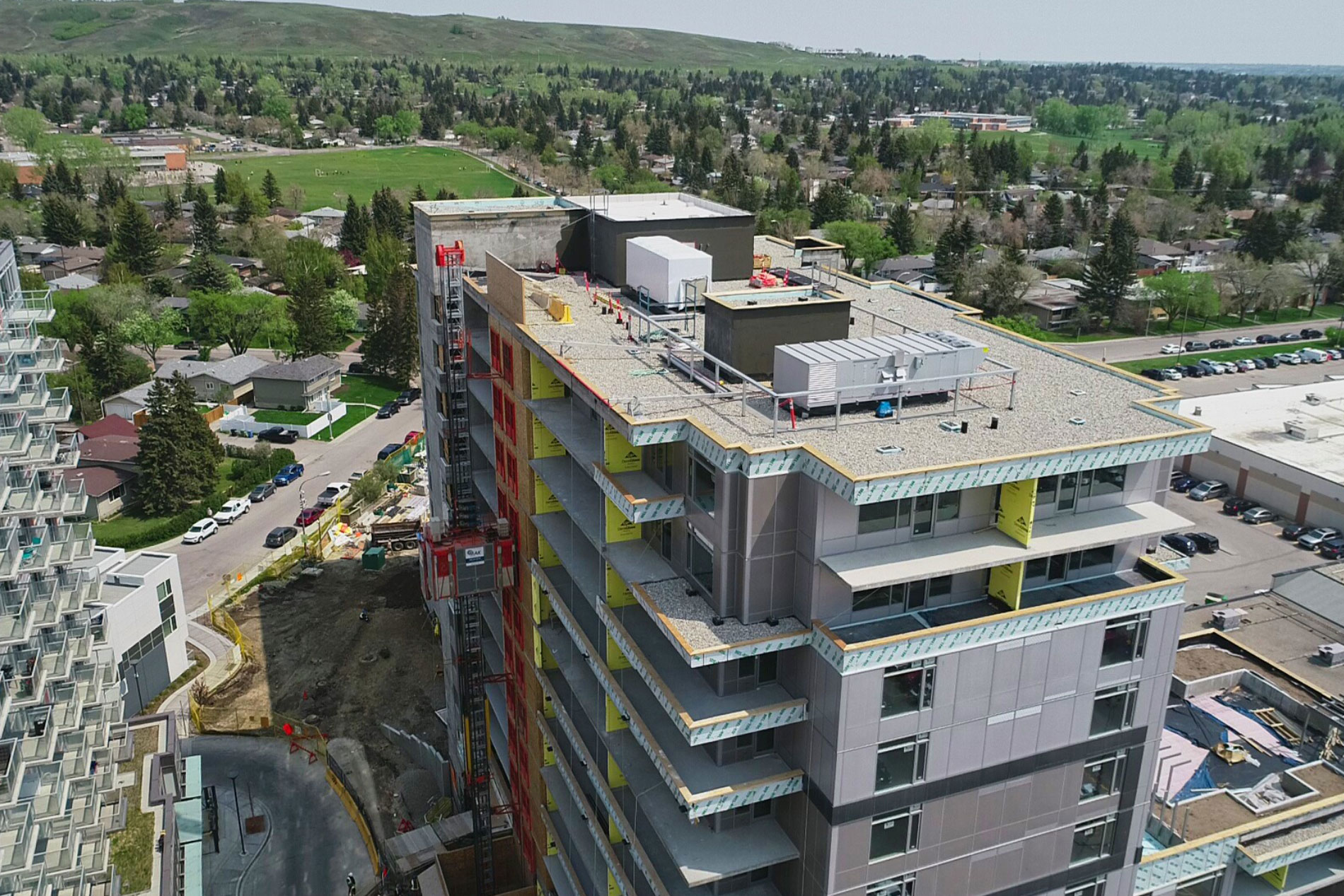 The materials used to create commercial roofing systems in Alberta are extremely varied and they all have their advantages and disadvantages.
The materials used to create commercial roofing systems in Alberta are extremely varied and they all have their advantages and disadvantages.
With our severe climate in Calgary and Edmonton, any commercial or industrial roof built out this way needs to keep the extremes of temperature, hail, snow, ice, and storms in mind.
But that’s just one of the major factors to consider.
Whatever type of commercial roof you’re looking for, there are many more factors to take into account than the type of material you use.
Factors to consider before you choose your roofing material
Types of commercial property
There are different roof types suitable for different types of commercial property, including:
- Retail buildings
Large industrial buildings
Small industrial buildings
Offices and office towers
Condominiums and apartment buildings
Roof design
Some materials work on some types of roof better than others so the roof design needs to be considered.
The four main designs that we work with here at United Roofing Inc are:
- Commercial flat roof – often the most cost-effective and easiest-to-install option but it can suffer from drainage problems
- Low-slope roof – good for drainage run-off but can be a problem when there is heavy snow (often constructed with a membrane to seal roofing material)
- Steep-slope roof – low maintenance due to rapid water runoff and lack of debris collection (more common on residential buildings than commercial buildings though)
- Architectural standing seam roof – constructed from metal panels and especially suitable for windy areas
Longevity
Of course, you want a roof that lasts.
You already know about the weather in Alberta. It means that any roof you choose for your business must be sturdy and hardy enough to survive our climate.
A roof made of weatherproof material should be high on the list of priorities when deciding on the type of commercial roof to install.
Maintenance requirements
A weatherproof roof is also going to be lower maintenance. That means less time and money spent keeping your roof in its best condition year after year.
Budget
Your budget will affect the choice of roofing material: some materials, like metal, are more expensive than others (e.g. TPO).
Warranties
Some materials are backed by longer warranties than others and it’s a good idea to check these with your supplier first.
Energy efficiency
Good energy efficiency keeps running costs low. It’s no good having a roofing solution that saves you money upfront only to cost you more every month for 30 or 40 years.
REQUEST A CONSULTATION
Common commercial roofing materials in Calgary & Edmonton
Metal Roofing
This is ideal for Calgary and Edmonton and you will see it used on many flat, low-slope, or architectural standing seam design roofs around both cities.
Don’t be fooled by the lightweight metal used in these types of roofs.
It’s very strong and durable, as well as being weather-resistant, fire-resistant, and looking great.
Although some metal roofs may be susceptible to rust, the use of protective surface layers minimizes the risk from the elements and usually provides additional protection from wear and tear.
Metal can fit into the budget for most businesses looking for a long-term return on investment with their roof (they should last 30-60 years).
You can also retrofit over a metal roof to extend its life. This allows you to reuse your current roofing insulation.
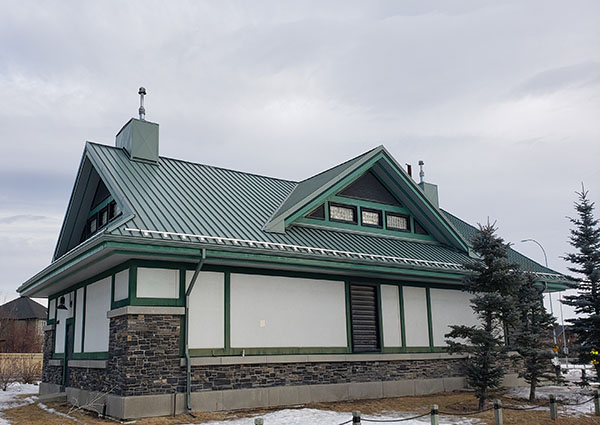
Built-Up Roofing (BUR)
BUR is a layered approach to roofing.
This is usually a good option for flat or low-slope roof designs and is sometimes known as a “tar and gravel” roof.
A bottom layer or two of insulation board is layered over with tar or asphalt and roofing felt, with a layer of gravel on the top.
This provides a tough and highly weather-resistant roof and you can control costs by varying the number of different layers.
These types of roofs are tough and highly weather resistant.
You may see BUR materials on the top of retail centres, office towers, or apartment buildings.
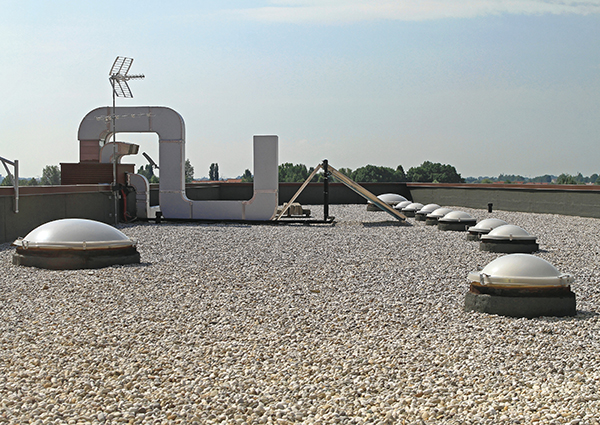
Membrane Roofing
Membrane roofing is now very common in Calgary and Edmonton because of its protective properties against the climate and its longevity.
It can also help protect against fire.
This roofing material comes in either a single or double-layer of membrane fixed in place using glue over the insulation board. Sometimes it can be loosely laid and topped with rock or paves to keep it in place.
It is most commonly used on flat and low-slope roofs.
The membrane can be made from a variety of materials including synthetic rubber or plastic formulations, such as:
- SBS – a type of modified bitumen
- EPDM – a highly durable and inexpensive synthetic rubber with a dark colour suitable for cooler climates
- TPO – this is lightweight, white in colour (reflects sunlight), single-ply and very cost-effective
The main downside to membranes is the possibility of holes and punctures developing.
While PVC membranes are also available, these usually come at a higher upfront cost than the other roofing materials outlined above.
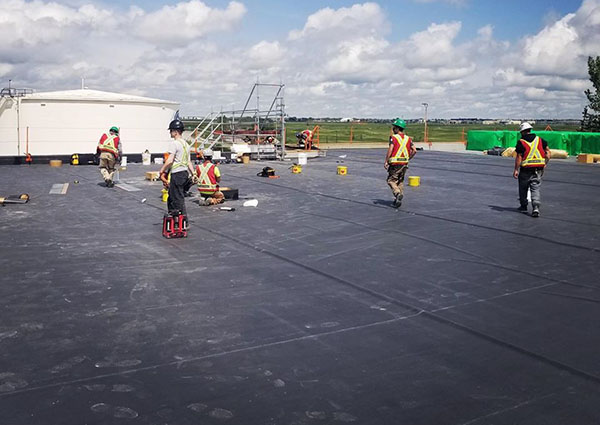
Modified Bitumen Roofing
Reinforced roof fabrics are usually applied to “carry” the bitumen. This is later cut and installed in layers similar to BUR membranes.
Most commercial roofs will be two-ply systems and the bitumen will adhere to the roofing deck for extra stability.
Modified bitumen has been a feature of roofs in Calgary and Edmonton for decades and it has seen advances in performance as the technology has improved.
It is a strong, easy-to-install, and cost-effective option for most commercial and industrial buildings and another advantage is its low-maintenance requirements.
Because of its strength, modified bitumen can be used on roofs that experience a lot of foot traffic, such as certain offices towers and condominium/apartment buildings
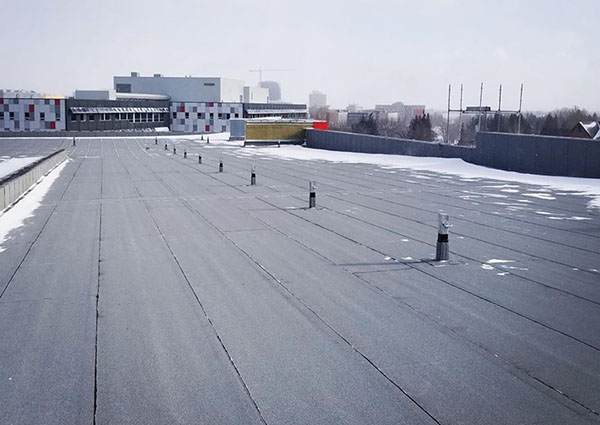
Green Roofing (Vegetative Rooftop Systems)
This has become a good option for commercial buildings in cities where environmentally friendly and sustainable choices have become more popular in recent years.
Roofs with living plants and vegetation are extremely versatile and they add a splash of colour to the surroundings
These roofs can provide excellent protection from the elements and assist with good drainage and energy-efficiency.
Vegetation is usually installed in tray systems on the top of flat roof surfaces, with some kind of roofing membrane as a base to the system.
